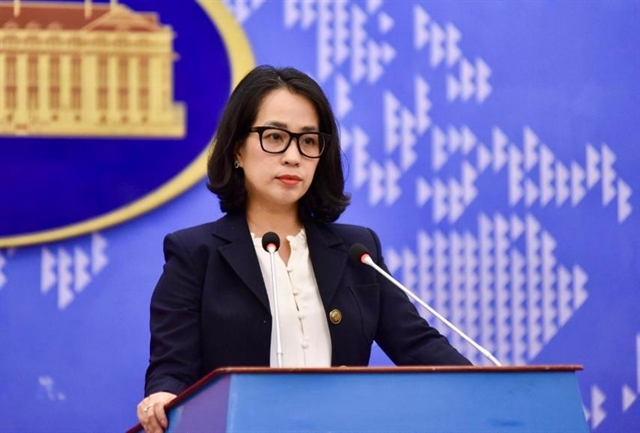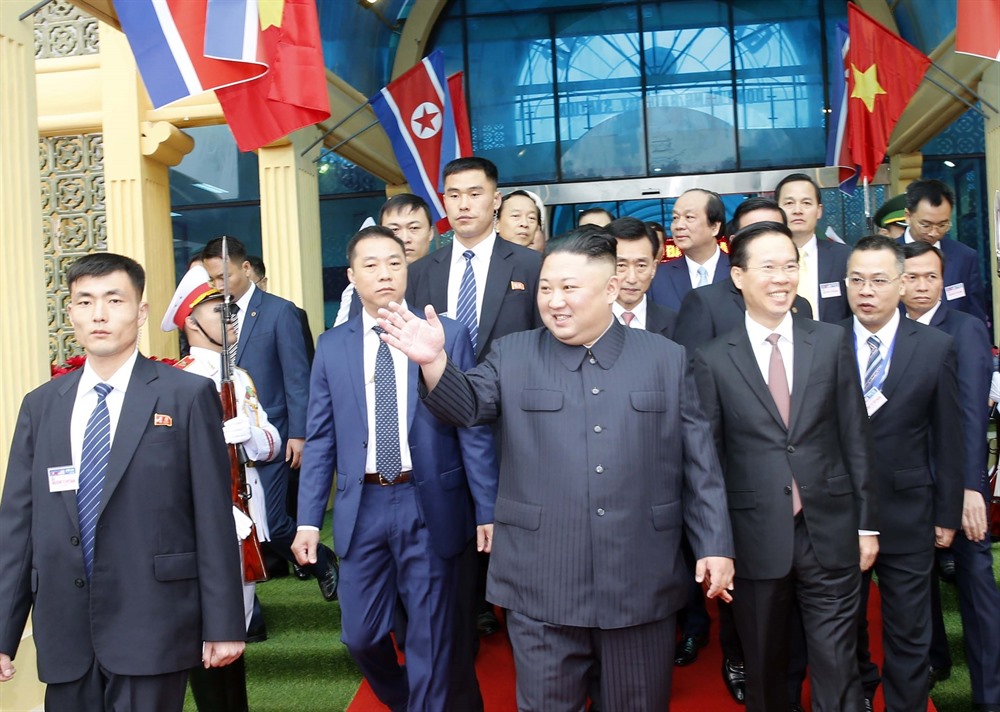 Politics & Law
Politics & Law

Chairman of the Democratic People’s Republic of Korea (DPRK) Kim Jong Un will have an official good-will visit to Việt Nam today and tomorrow, at the invitation of the President, General Secretary of the Communist Party of Việt Nam Nguyễn Phú Trọng.
 |
| Chairman of the Democratic People’s Republic of Korea (DPRK) Kim Jong Un waves to the cheering crowd at Đồng Đăng station as he arrived in Việt Nam on February 25. — VNA/VNS Photo Nhan Sáng |
HÀ NỘI — Chairman of the Democratic People’s Republic of Korea (DPRK) Kim Jong Un will have an official good-will visit to Việt Nam today and tomorrow, at the invitation of the General Secretary of the Communist Party of Việt Nam, President Nguyễn Phú Trọng.
The leader has been in Việt Nam since February 25 for a summit with US President Donald Trump.
Taking place more than 60 years since the first visit to Việt Nam by DPRK founder Chairman Kim Il Sung in 1958 and ahead of the 70th anniversary of bilateral diplomatic ties in 2020, Chairman Kim’s visit will mark a new milestone in the rich relations between the two countries and two parties.
The visit is set to showcase Việt Nam’s appreciation of traditional ties with the DPRK.
The diplomatic relations between Việt Nam and the DPRK, established on January 31, 1950, by Vietnamese President Hồ Chí Minh and DPRK Chairman Kim Il Sung, have grown over the past 70 years with several trips made by the top leaders of the two countries.
Two of the highlights in the bilateral relations are the Việt Nam-North Korea Friendship Kindergarten in Hà Nội and the North Korea-Việt Nam Friendship Kyongsang Kindergarten in Pyongyang, with the former entirely built and equipped by the North Korean government.
Việt Nam has also provided aid for the DPRK, with 100 tonnes of rice in 1995, 13,000 tonnes in 1997, 22,700 tonnes of rice as well as five tonnes of raw rubber and US$50,000 in aid from 2000-12, and then $70,000 in 2016 for flood victims.
In the 1960-70s, the DPRK helped Việt Nam by training hundreds of students and education agencies of the two countries are currently working towards an education co-operation agreement.
Over the past few years, the two countries have held rotational policy discussions at the deputy foreign ministerial level and meetings of the Inter-Governmental Committee for economic, scientific and technical co-operation.
Many important deals have been inked, including agreements on cultural co-operation, scientific-technical co-operation, trade and navigation, healthcare and civil air transport co-operation.
In 2002, the two sides signed agreements on sea transport, trade, mutual legal assistance, investment promotion and protection, and double-taxation avoidance.
During a visit to Việt Nam in November 2018, DPRK Foreign Minister Ri Yong Ho emphasised the DPRK party and government’s consistent stance of treasuring ties with Việt Nam.
The DPRK side also agreed to work with Việt Nam to consider measures to reinforce bilateral ties.
During the visit, the two sides also agreed to keep working closely at international and regional forums like the UN, the Non-Aligned Movement and the ASEAN Regional Forum, as well as to increase the exchange of views on issues of common concern.
Most recently, from February 12 to 14, Vietnamese Deputy Prime Minister and Foreign Minister Phạm Bình Minh paid an official visit to the DPRK.
He affirmed that Việt Nam attaches importance to developing friendship with the party, government, and people of the DPRK.
Two-way trade remains modest but the two countries are always striving to expand it. Bilateral trade reached $8 million in 2014 and $11.6 million in 2015.
In 2017, Việt Nam’s export to the DPRK reached $7.32 million, with confectionery and baked products the main exports. In the first nine months of 2018, Việt Nam’s exports reached $497,000.
Chairman Kim Jong Un’s visit aims to promote co-operation in areas suitable to each country’s interests, laws and international commitments, and contribute to regional peace and development. — VNS

.jpg)


